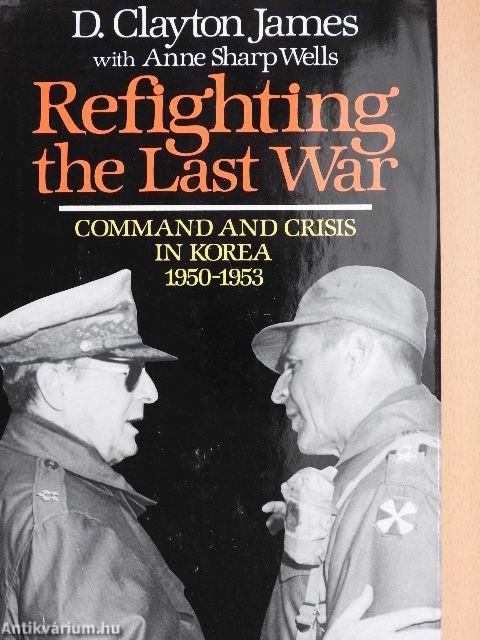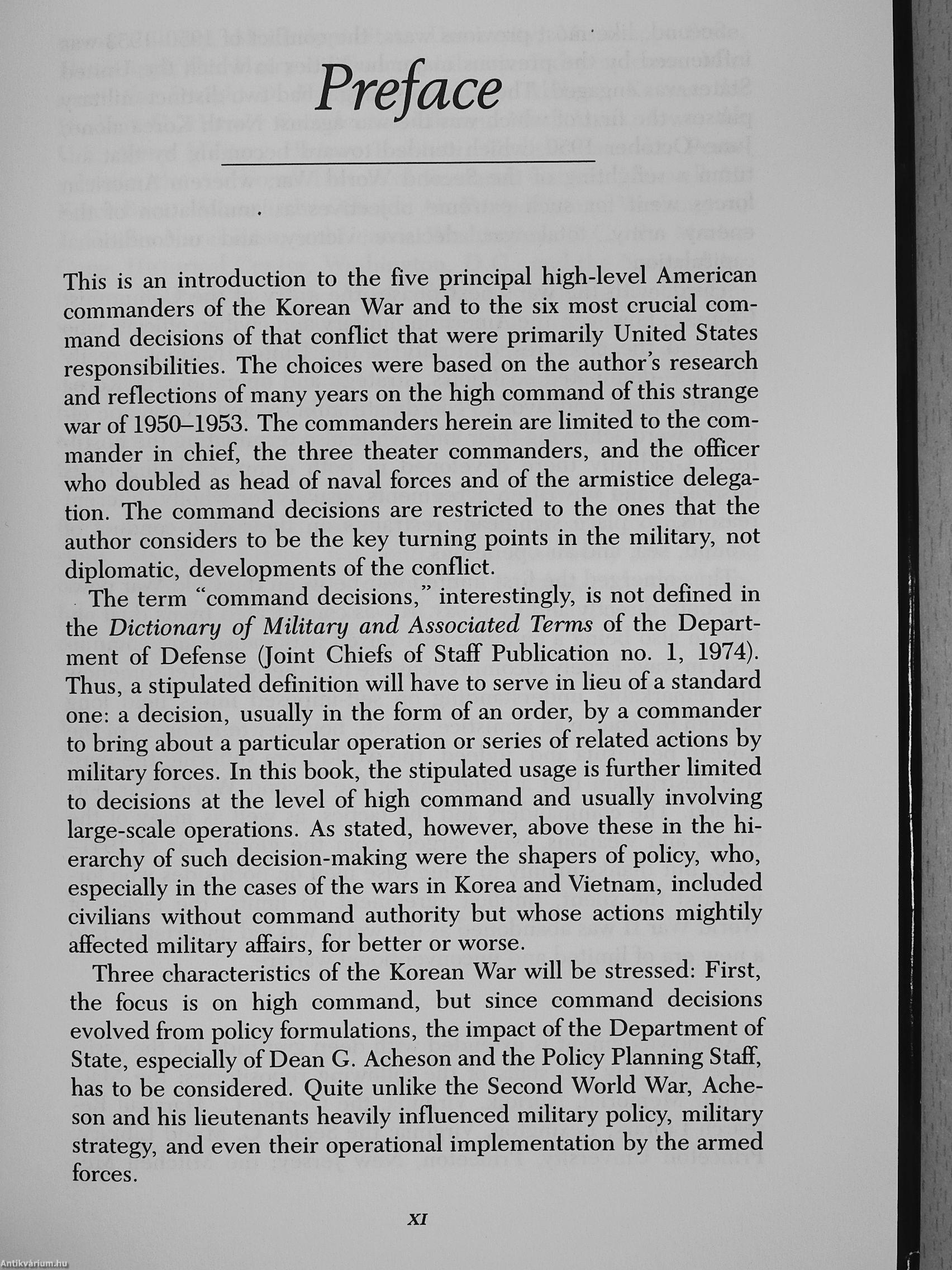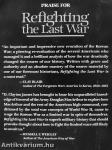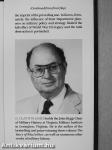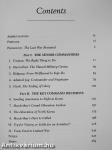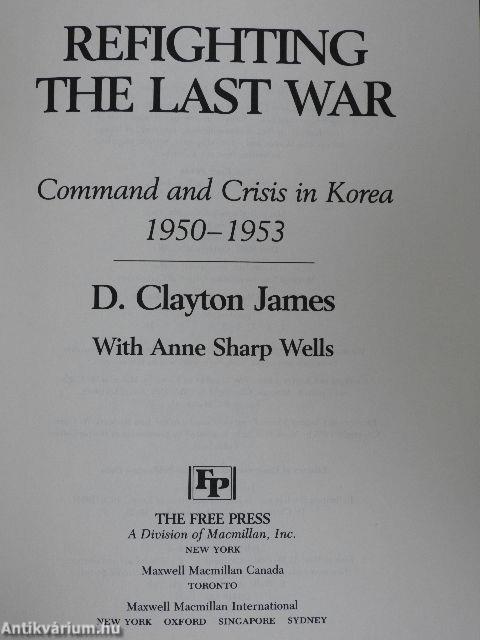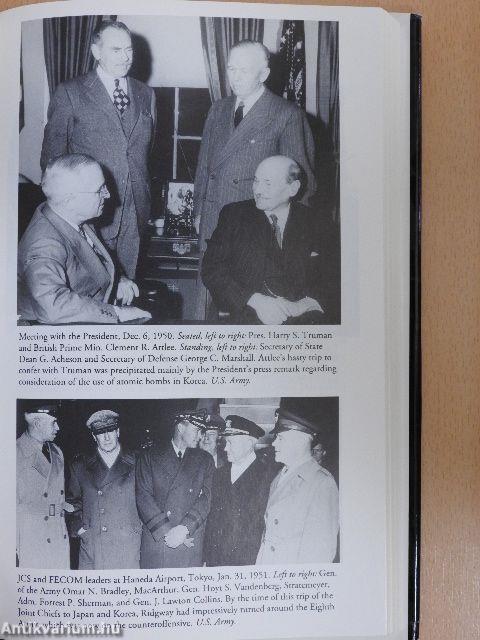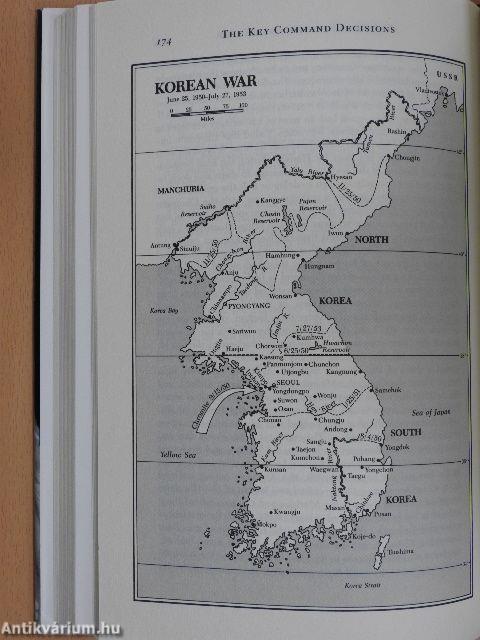1.067.715
kiadvánnyal nyújtjuk Magyarország legnagyobb antikvár könyv-kínálatát

VISSZA
A TETEJÉRE
JAVASLATOKÉszre-
vételek
Refighting the Last War
Command and Crisis in Korea 1950-1953
| Kiadó: | The Free Press |
|---|---|
| Kiadás helye: | New York |
| Kiadás éve: | |
| Kötés típusa: | Fűzött kemény papírkötés |
| Oldalszám: | 282 oldal |
| Sorozatcím: | |
| Kötetszám: | |
| Nyelv: | Angol |
| Méret: | 24 cm x 16 cm |
| ISBN: | 0-02-916001-4 |
| Megjegyzés: | Fekete-fehér fotókkal, térképekkel. |
naponta értesítjük a beérkező friss
kiadványokról
naponta értesítjük a beérkező friss
kiadványokról
Előszó
TovábbFülszöveg
PRAISE FOR
the Last W^r
"An important and impressive new evocation of the Korean Wai^ a piercing re-evaluation of the several Americans who managed it and a brilliant analysis of how the war drastically changed the course of our history. Written with grace and authority^ and an absolute mastery of the source material by one of our foremost historians, Refighting the Last War is a must read."
—CLAY BLAIR
Author of The Forgotten War: America in Korea, 1950-1953
'^D. Clayton James has brought to bear his unparalleled knowledge of General of the Army Douglas MacArthur to explore how MacArthur and the rest of the American hi^ command, conditioned by the total war concepts of World War II, came to wage the Korean War as a limited war in spite of themselves. Righting the Last War is superb militaiy histoiy that should provoke thou^t about how to fight the limited wars still likely to await us." ^
—RUSSELL F. WEIGLEY
Author of The American Way of War
Now, during the 40th... Tovább
Fülszöveg
PRAISE FOR
the Last W^r
"An important and impressive new evocation of the Korean Wai^ a piercing re-evaluation of the several Americans who managed it and a brilliant analysis of how the war drastically changed the course of our history. Written with grace and authority^ and an absolute mastery of the source material by one of our foremost historians, Refighting the Last War is a must read."
—CLAY BLAIR
Author of The Forgotten War: America in Korea, 1950-1953
'^D. Clayton James has brought to bear his unparalleled knowledge of General of the Army Douglas MacArthur to explore how MacArthur and the rest of the American hi^ command, conditioned by the total war concepts of World War II, came to wage the Korean War as a limited war in spite of themselves. Righting the Last War is superb militaiy histoiy that should provoke thou^t about how to fight the limited wars still likely to await us." ^
—RUSSELL F. WEIGLEY
Author of The American Way of War
Now, during the 40th anniversary of the Korean War, distinguished historian D. Clayton James offers a brilliant reinterpretation of that conflict. Focusing on the critical issue of command, he shows how the Korean War is a key to understanding American decision-making in all military encounters since World War II.
Korea, the first of America's limited wars to stem the tide of world communism, was fought on unfamiliar terrain and against peasant soldiers and would become a template for subsequent American military engagements, especially Vietnam. And yet, the strategic and tactical doctrines employed in Korea, as well as the weapons and equipment, were largely left over from World War II. Each time a war is '.S fought, D. Clayton James reveals, the lessons of
the last war are applied in the new context, whether or not they are appropriate to the l ,! , ¦ :' ' i V:)^ changed circumstances.
James, the master biographer of MacArthur, uses studies of military crises to examine the American high command in the Korean War. He 1 ; i I B explores the roles, leadership, personalities, and
prejudices of five key commanders—President Harry S. Truman; Generals Douglas MacArthur, Matthew B. Ridgway, and Mark W. Clark; and Admiral C. T\imer Joy—and then looks at six crucial issues confronting them in that conflict.
From the decision made by Truman, without congressional approval, to commit United States forces to combat in Korea, to MacArthur's persistent fight for approval of his dangerous plan to ' assault Inchon, to the judgment to finally open
truce negotiations, these turning points illuminate the American way of command in wartime. James analyzes the ground-level results and u , 1 ;, r? ' j ¦ long-term implications of each choice, and sen-
1 ; i : i' V sitively explores the course that might had
, !i „ , followed if other options had been taken.
I i i , i I ' \ Probing the nature and consequences of these
military resolutions, James shows how the con-
ll' I ¦¦ I I '1 !
: ¦•, J . V '
ii ii ill duct ofthe Korean War, like every new war, bears
Î ! : ' 1/ , 1, ii i ' ; 'I ; |, > ¦ (Continued on back flap)
(Continued from front flap)
the imprint of the preceding one. In Korea, fortunately, the influence of State Department planners on military policy and strategy limited the full effect of World War II's legacy and the total destruction it portended.
D. CLAYTON JAMES holds the John Biggs Chair of Military History at Virginia Military Institute in Lexington, Virginia. He is the author of the bestselling and prize-winning three-volume The Years of MacArthur, as well as numerous other works of military history. Vissza
Témakörök
- Idegennyelv > Idegennyelvű könyvek > Angol > Történelem > Európa története > Egyéb
- Idegennyelv > Idegennyelvű könyvek > Angol > Történelem > USA története
- Történelem > Idegennyelvű > Angol
- Történelem > Kontinensek szerint > Amerika, amerikai országok története > Észak-Amerika
- Történelem > Kontinensek szerint > Ázsia, ázsiai országok története > Távol-Kelet
- Történelem > Kontinensek szerint > Európa, európai országok története > Kelet-Európa > Oroszország, Szovjetúnió
- Történelem > Legújabb kor > A hidegháború kora (1946-1991)
- Történelem > Hadtörténet > Háborúk, csaták
- Történelem > Hadtörténet > Hadügy, hadviselés
Megvásárolható példányok
Nincs megvásárolható példány
A könyv összes megrendelhető példánya elfogyott. Ha kívánja, előjegyezheti a könyvet, és amint a könyv egy újabb példánya elérhető lesz, értesítjük.



